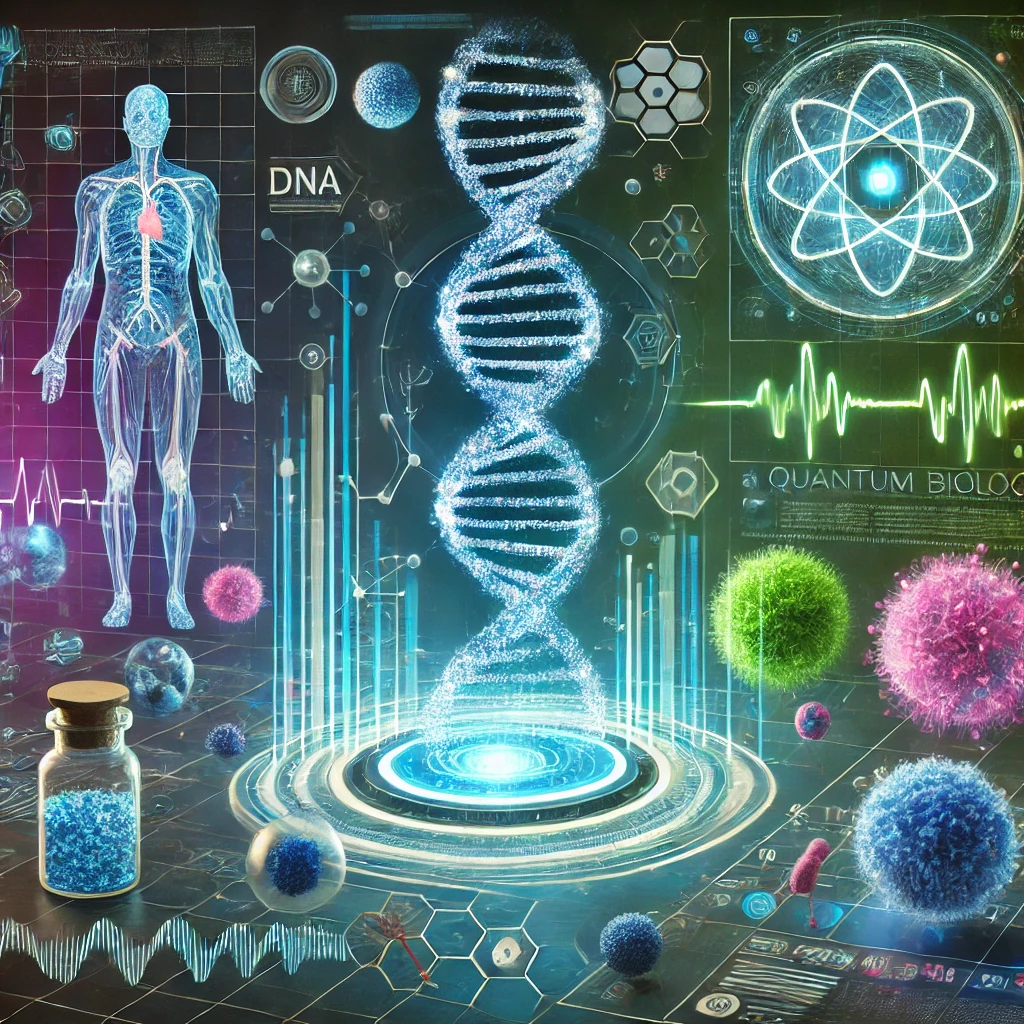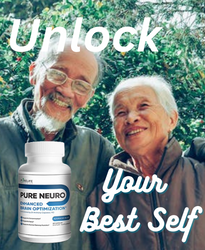What if I told you that your body is secretly moonlighting as a quantum physicist? Yes, the same science that gave us Schrödinger’s cat, particle entanglement, and other brain-bending phenomena is quietly at work within your cells. Welcome to the world of quantum biology, where the mysteries of quantum mechanics meet the marvels of human health. It sounds like science fiction, but trust me, it’s as real as your Fitbit reminding you to stand up every hour.
Quantum biology is not just a fancy phrase to impress your friends at dinner parties (though it works for that too). It’s a cutting-edge field that could revolutionise how we approach health, medicine, and even the way we think about our bodies. So, grab a cuppa and buckle up for a humorous dive into the wild world of quantum biology and its potential to reshape the future of health.
The Basics of Quantum Biology (Or, Why Your Body Is a Quantum Playground)
Let’s start with the million-pound question: what is quantum biology? In simple terms, it’s the study of how quantum mechanics—the physics of the teeny-tiny—plays a role in biological processes. While traditional biology is all about cells, tissues, and organ systems, quantum biology zooms in to explore how subatomic particles (like electrons and photons) influence life itself.
For example, quantum biology suggests that processes like photosynthesis in plants or enzyme reactions in your body aren’t just chemical wonders; they’re quantum miracles. These processes rely on phenomena like quantum tunnelling, where particles pass through barriers as if they’ve suddenly decided walls are optional. Imagine if you could do that with traffic jams—the dream, right?
But how does this connect to health? Well, researchers believe quantum mechanics could be the key to unlocking solutions for diseases, improving mental health, and even extending our lifespan. And before you ask, no, quantum biology does not mean you can blame quantum fluctuations for eating that extra slice of cake. Nice try, though.
How Quantum Biology Could Revolutionise Medicine
Quantum Diagnostics: Sherlock Holmes Goes Subatomic
One of the most exciting applications of quantum biology is in diagnostics. Imagine being able to detect diseases at their earliest stages, long before they wreak havoc on your body. Quantum sensors, powered by principles like superposition (where particles exist in multiple states simultaneously), could make this a reality. These sensors can detect minute changes in your body’s chemistry, offering unparalleled precision.
For instance, scientists are already exploring how quantum mechanics could improve imaging technologies like MRI scans. Current MRI machines are great, but they’re about as subtle as a brick when it comes to detecting microscopic abnormalities. Quantum-enhanced imaging, on the other hand, could be so sensitive it might spot issues before your GP’s even had their morning tea.
Personalised Medicine: Your Quantum Health Blueprint
Another promising avenue is personalised medicine. Forget one-size-fits-all prescriptions; quantum biology could pave the way for treatments tailored to your unique quantum makeup. Researchers are studying how quantum properties of molecules interact with your DNA to develop therapies that target specific genes or proteins.
Think of it like a bespoke suit for your health. Instead of standard treatments that may or may not work, quantum medicine could ensure that every drug, supplement, or therapy is perfectly tailored to your individual needs. It’s personalised healthcare, but with a splash of quantum pizzazz.
Join Our Mailing List
Register now to get our hints and tips newsletter directly to your inbox
The Role of Quantum Biology in Mental Health
Quantum Mind Games: Is Your Brain a Quantum Computer?
Your brain is already a marvel of biological engineering, but some scientists believe it might also be a quantum machine. The theory is that quantum processes could explain phenomena like consciousness, decision-making, and even creativity. No wonder you have those sudden flashes of genius while in the shower—your brain might be quantum-leaping its way to solutions!
Quantum biology could also offer insights into mental health disorders like depression and anxiety. For example, the quantum behaviour of neurotransmitters (the chemicals that help your brain communicate) could be a factor in mood regulation. By understanding these processes, researchers hope to develop more effective treatments with fewer side effects. Imagine antidepressants that don’t come with a laundry list of potential downsides—now that’s something to smile about.
Sleep and Quantum Coherence: A Match Made in the Cosmos
Ever wondered why you wake up feeling refreshed after a good night’s sleep? Quantum biology might have the answer. Some theories suggest that quantum coherence—where particles move in a synchronised state—plays a role in cellular repair during sleep. It’s like your body’s cells are having a nightly jam session, harmonising to keep you in top form.
Understanding this process could lead to groundbreaking treatments for sleep disorders. Imagine a future where insomnia is tackled with quantum-enhanced therapies rather than sheep-counting apps. Sounds dreamy, doesn’t it?
Quantum Biology and the Future of Nutrition
Quantum Nutrients: Eating at the Subatomic Level
Food is more than just fuel; it’s a symphony of chemical and quantum interactions. Quantum biology could help us understand how nutrients interact with our cells at a subatomic level, potentially leading to supercharged diets. Think superfoods, but scientifically optimised for maximum quantum efficiency.
For example, researchers are investigating how the quantum properties of light influence vitamin D production in your skin. This could lead to innovations like personalised supplements that work in harmony with your body’s quantum quirks. Who knew your morning smoothie could be a quantum cocktail?
Challenges and Ethical Considerations
Of course, no scientific breakthrough comes without its challenges. Quantum biology is still in its infancy, and translating its principles into practical healthcare solutions will take time. Plus, there are ethical questions to consider. For instance, how do we ensure equitable access to quantum-enhanced treatments? And what safeguards are needed to protect against misuse?
Then there’s the small matter of public understanding. Quantum mechanics is notoriously tricky to grasp (hello, Schrödinger’s cat), and adding biology to the mix doesn’t exactly simplify things. Public education will be crucial to ensure that quantum biology doesn’t end up as just another misunderstood buzzword.
A Quantum Leap Forward
Quantum biology may still be a fledgling field, but its potential to revolutionise health and medicine is enormous. From quantum diagnostics to personalised medicine, mental health treatments, and nutrition, the possibilities are as vast as the cosmos.
So, the next time you hear the term “quantum biology,” don’t just nod politely and pretend you understand. Embrace it, marvel at it, and maybe even crack a joke about how your cells are better quantum physicists than you’ll ever be. After all, the future of health is not just biological; it’s quantum. And that, my friends, is a reality worth getting entangled with.




